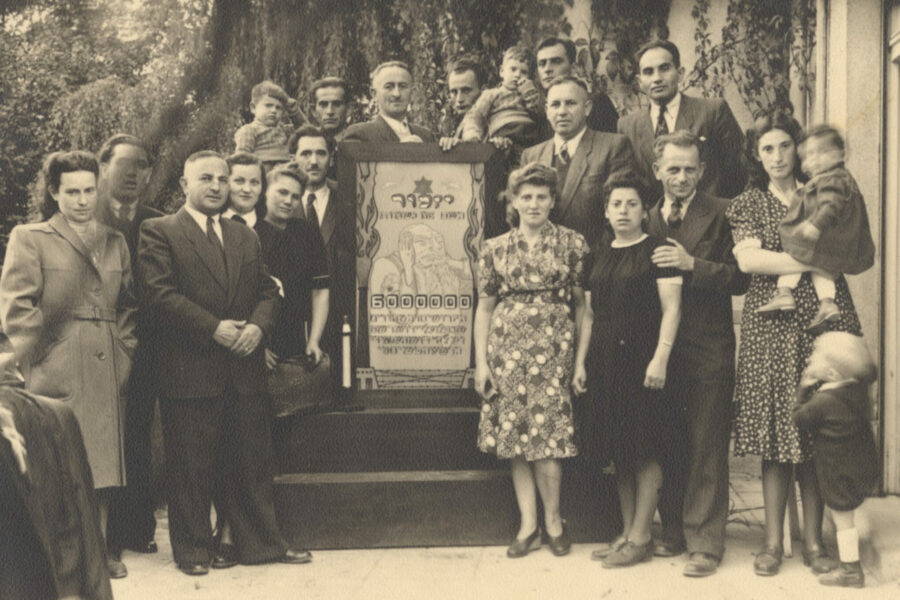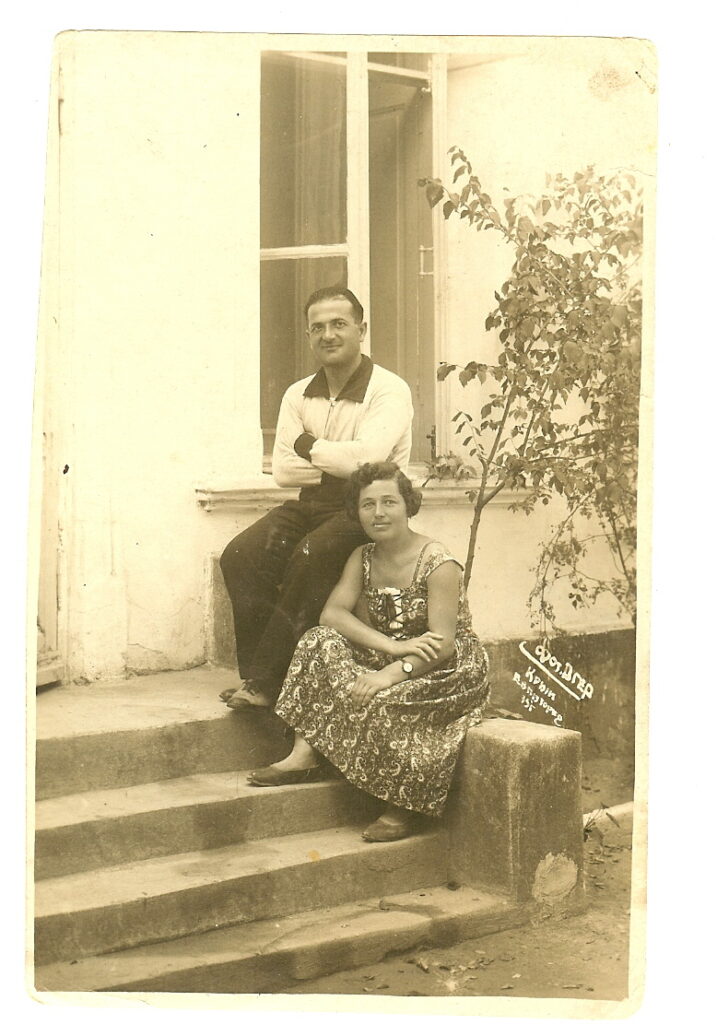Photograph of Inessa Yurkevich’s parents, her father, Samuil Yurkevich, and her mother, Irina Rukhavets, sitting on a stoop while on vacation in Crimea, 1935.
Survivors in front of a memorial to the six million murdered Jews, c. 1948.


Photograph of Inessa Yurkevich’s parents, her father, Samuil Yurkevich, and her mother, Irina Rukhavets, sitting on a stoop while on vacation in Crimea, 1935.
Inessa Yurkevich was born on August 15, 1937, in Minsk, Belarus, where she lived with her parents and oldest sister, Victoria. In 1938, her father, Sammie Yurkevich, was arrested by the Soviet KGB and killed; he was fully exonerated in 1958. During the German occupation of Minsk, Inessa and her mother, Irina Rukhavets, were saved by four Righteous Gentiles of Minsk and the village of Gusolovka (near Minsk). Inessa’s mother was able to find employment with false papers as Irina Yurkevich, a Belorussian. Using false papers, Inessa and her mother avoided being placed in the Ghetto. Irina worked as a nurse in a mental hospital in a Minsk suburb for the Health Human Ministry of the Belorussian Republic in the city of Minsk. Inessa’s sister, Victoria, escaped from Minsk with her aunt’s family and worked at a military plant in the city of Kuibyshev (Samara) on the Volga River. Leonid Putan, a friend of Inessa and Victoria’s cousin “Ann”, took Inessa to his family house in Minsk and kept her there for half a year. During that time, Inessa’s mother went to the village of her former nanny and found a place to live and work with Tatiana Novitskaya’s family. Once she secured a place to live and work she retrieved Inessa and stayed with the Novitskaya family until the end of the war. In 1945, after the war, the family reunited in Minsk. Inessa finished high school in 1955, and later obtained a degree in HVAC engineering from the Institute of Technology in 1960. Her mother worked as a nurse and died in 1977. Inessa married in 1966 and has one daughter. She immigrated to the Chicago area in November 1989.


